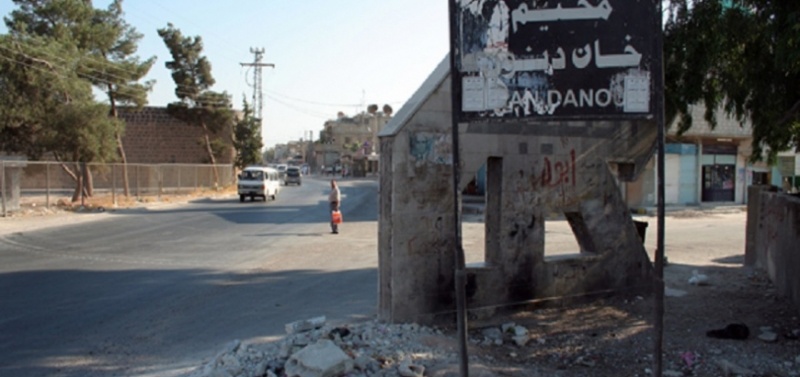Area: Syria
Population Size: 11,815
Established date: 1950
Background:
Khan Dunoun camp is near the ruins of Khan Dunoun, which was built several centuries ago to give overnight accommodation to trading caravans on the ancient route between Jerusalem and Constantinople (modern day Istanbul).
In 1948, the ruins provided shelter for refugees from villages in northern Palestine.
The camp, which is 23km south of Damascus, was officially established in 1950-1951 on an area of 0.03 square kilometres.
Khan Dunoun is one of the poorest camps in Syria. Most refugees are farm workers on Syrian-owned lands; others are wage labourers, while a few commute to industrial plants.
Many families have difficulty in meeting even their most basic needs. The pressure on young people to leave school early to contribute to the family income means a generally low level of education in the camp. This is especially true of women, who find jobs as house cleaners or workers in clothing factories.
There is a relatively high incidence of illnesses associated with poor environmental health conditions, and a high incidence of inherited diseases such as thalassaemia and sickle-cell anaemia. This is difficult to combat because in such a poor community marriage between first cousins is common and marriages outside the extended family are unaffordable for many.
A lack of proper sanitation facilities is the most pressing problem in the camp. Wells, dug without official permission, have dried up due to lack of rain and constant over-exploitation of the ground water. Many refugees now buy water from mobile tankers operating in the area, but the water is not always safe for human consumption.
The camp also lacks a sewerage system and shelters only have pit latrines. The proximity of pit latrines to water wells poses a major health hazard for camp residents as well as for neighbouring villages. A camp infrastructure improvement project has installed water and sewage networks, roads, water and wastewater systems.
--------------
The information included here predates the start of the conflict in Syria in March 2011. For more up-to-date information, please visit the Syria crisis page. (UNRWA website)


